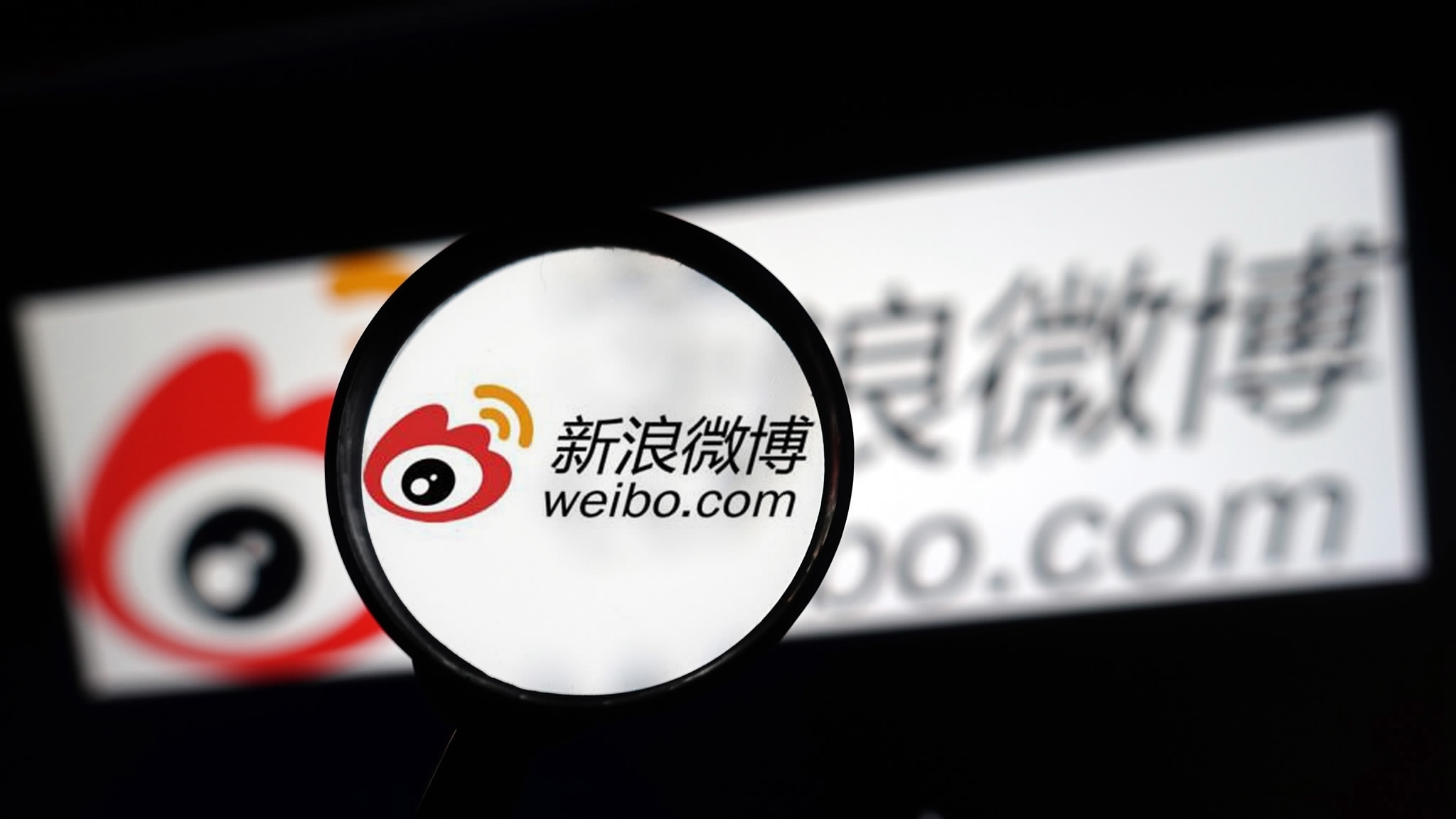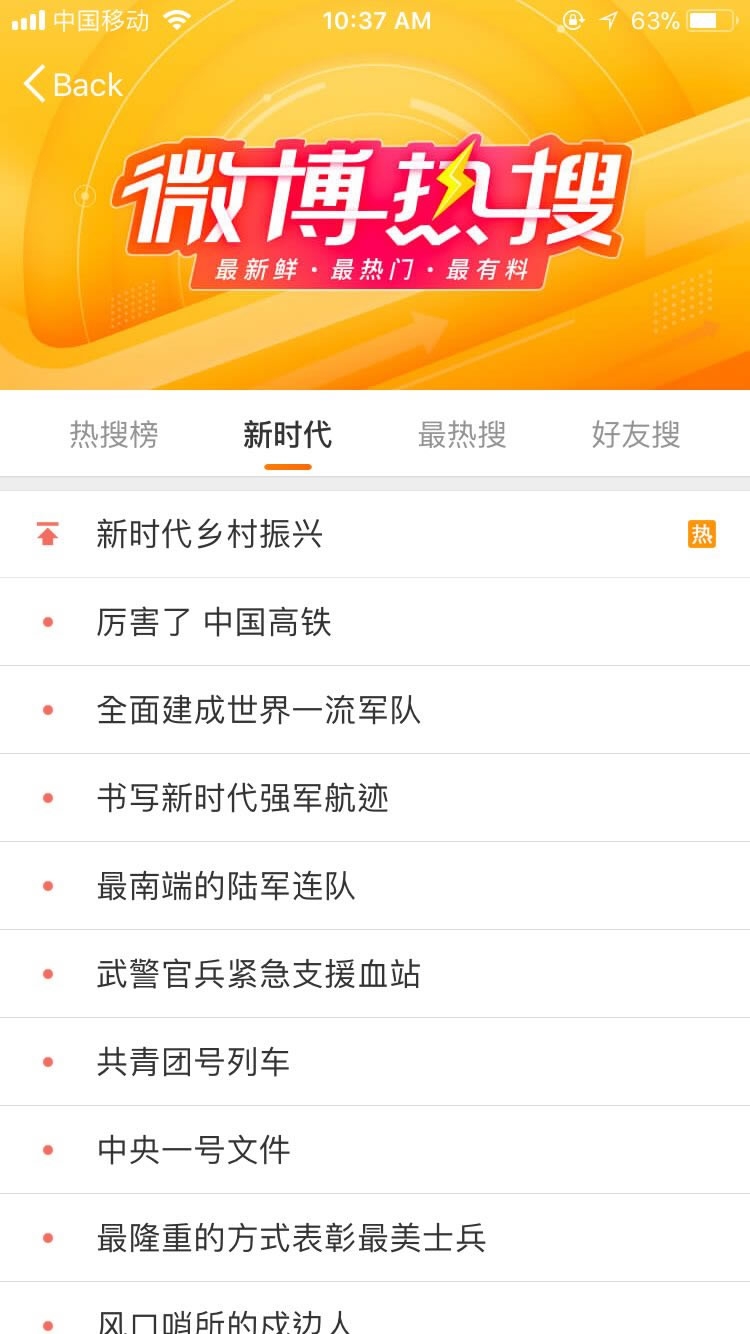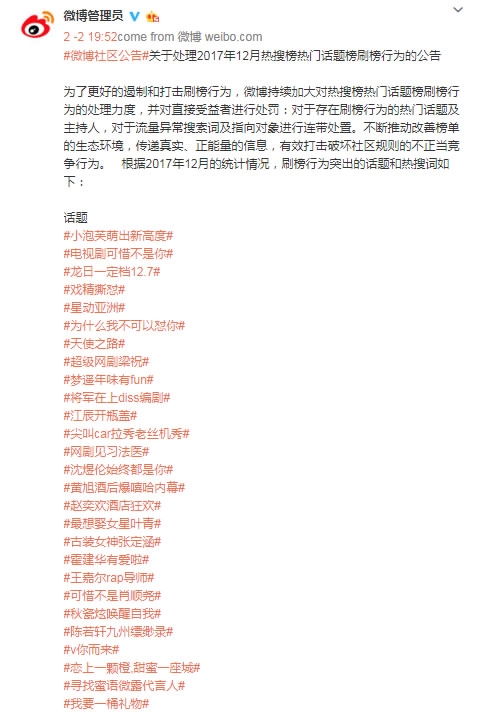
China
14:04, 05-Feb-2018
Sina Weibo re-introduces suspended portals after revamp
CGTN

Sina Weibo, China’s Twitter-like social media platform, reintroduced on Sunday its top search portals after it suspended the functions following criticism by the country’s top Internet watchdog over harmful content.
The revamped section of the key portals on one of China’s most used online platforms consists of four functions: trending hashtags, most searched topics, searches from friends and the brand new “new era” which highlights topics and discussions related to China’s achievements and current domestic news.

CGTN screenshot of the new "new era" listing, featuring China's achievements.
CGTN screenshot of the new "new era" listing, featuring China's achievements.
The portals of “trending” and “most searched” topics have seen a drastic makeover. Previously, so-called “trustworthy users”, users rated by Weibo based on their online behavior, had a major sway on what appears in the result section when people look up what is trending on Weibo. However, from now onward, Weibo staffers will be keeping an eye on the two rankings to ensure they truthfully reflect the discussions on the platform.
There have been reports that individuals and entities illegally hire Weibo users to help some hashtags or topics go viral by deliberately re-posting and commenting on certain entries, or even deleting or reporting negative reviews. Some even go as far as insulting rivals and spreading fake information on them.

CGTN screenshot of the four lists displayed on Weibo top search portal.
CGTN screenshot of the four lists displayed on Weibo top search portal.
Paid Internet posters, known as “Internet Navy”, have established a profitable dark business online, with the most infamous being San Da Ha in China. According to Xinhua News Agency, over 200 paid Internet posters have been detained since May 2017 and some 5,000 fake accounts have been shut down.
Internet regulators criticized Sina Weibo last week for failing to censor illegal, fake and harmful information published on its portals, and asked it to overhaul its sections. The company later announced it was suspending for a week some of its functions while it cleans its content.
Last Friday, the Cyberspace Administration of China, asked Sina Weibo to take responsibility for all posts published on the platform as well as the identity of its users. Weibo users have to register using their real names while the platform has the duty to protect their personal information.

CGTN screenshot of suspicious hashtags published by @WeiboAdministrator.
CGTN screenshot of suspicious hashtags published by @WeiboAdministrator.
Sina Weibo was also asked to set up a systematic mechanism to refute rumors.
As of late, Sina Weibo’s administration account, @WeiboAdministrator, began publicly naming and shaming accounts that are suspected of having illegal operations and taking them offline. Some hot searches or hashtags suspected of distorting the rankings have also been publicized.
Sina Weibo has closed more than 1,000 accounts since January 31, most of which believed to spread vulgar or wrong information. As one of the most influential social networks in China, Weibo promised to build up a healthy cyberspace.
The social media platform has about 361 million monthly active users.

SITEMAP
Copyright © 2018 CGTN. Beijing ICP prepared NO.16065310-3
Copyright © 2018 CGTN. Beijing ICP prepared NO.16065310-3